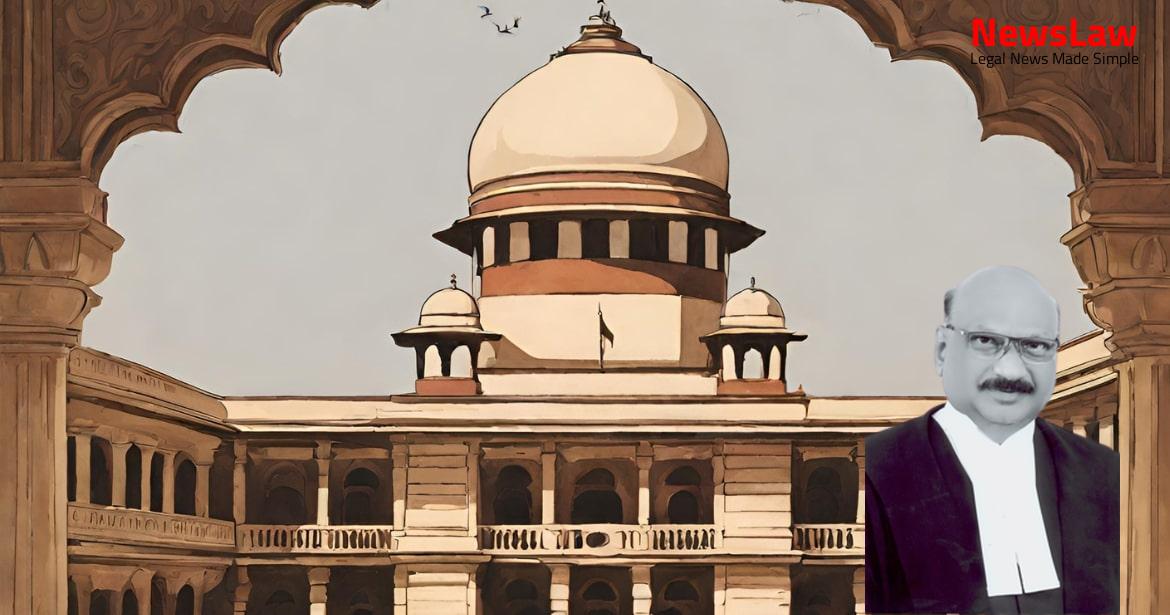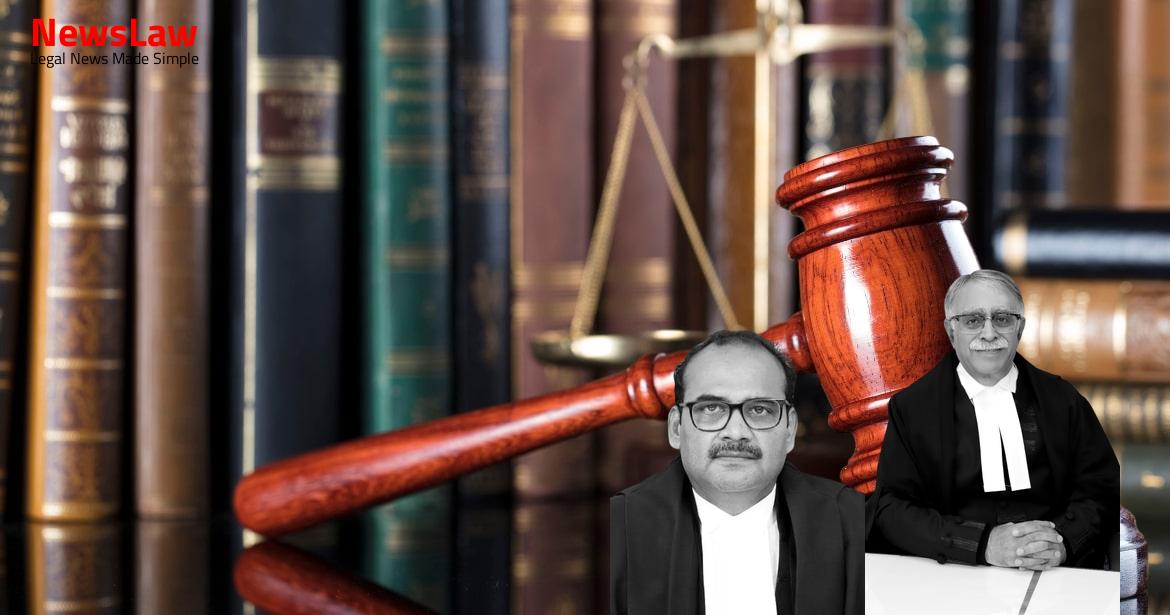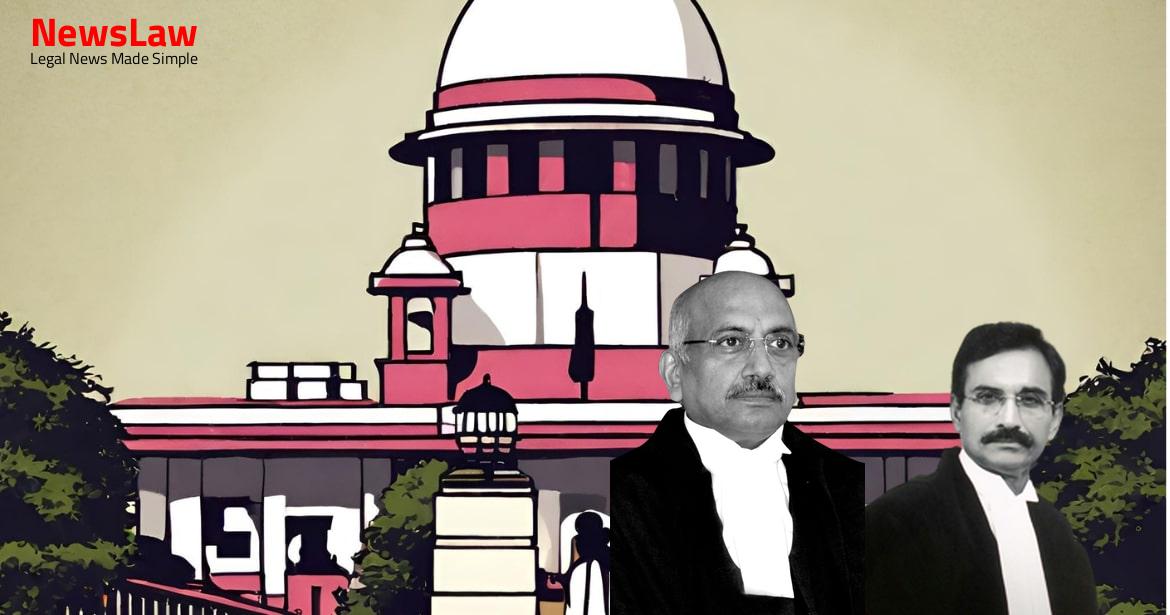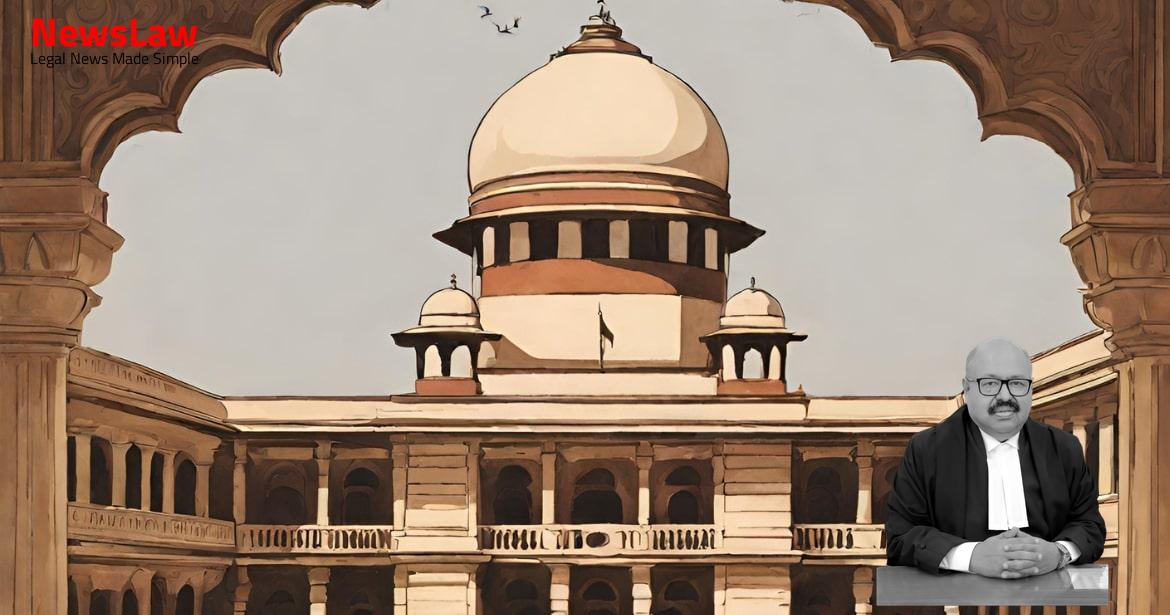A recent legal case involved an in-depth examination of alleged misstatements made during legal proceedings. The court focused on the legal analysis surrounding the accuracy of statements and whether there was any intentional deception involved. Dive into our summary to explore the nuances of legal ethics and the court’s findings.
Facts
- Respondent No. 3 filed M.A. No 782 of 2017 seeking modification of the order dated 04.05.2017 and de-tagging of two suits.
- The tenancy of the Applicant was terminated by notice dated 11.2.2009.
- Two suits were filed – ‘1 suit’ by twelve members of the Jhaveri family for possession and injunction, and ‘2 suit’ by Respondent No 1 for eviction against the Jhaveri family.
- Respondent Nos. 3-5 opposed the clubbing of suits, alleging collusion with a third party.
- Order dated 04.05.2017 granted relief without notice to Respondent Nos. 3-5.
- SLP (Civil) No. 12501/2017 was filed against this order.
- M.A. No 782 of 2017 was allowed, and SLP (Civil) No. 12501/2017 was restored.
- Applicant is a monthly tenant of the suit premises.
- Application under CPC seeking clubbing of suits was filed by the Jhaveri family.
- Respondent No. 3 admitted oversight in stating that issues had not been framed in the 2 suit.
- Application filed under CrPC seeking criminal proceedings against Respondent No. 3 for false evidence.
- Applicant contended in its reply that both suits were at similar stages with differences regarding jurisdiction issues.
- It was argued that issues had been framed in the 2 suit as well.
- High Court of Bombay dismissed the application filed by the petitioners
- Submissions made by Respondent Nos. 3-5 were accepted
Also Read: Interpretation of Will Clauses in Property Dispute
Arguments
- Applicant filed a petition under Section 340 of the CrPC, alleging Respondent No 3 made incorrect statements in a previous case to mislead the court.
- Applicant’s counsel argued that Respondent No 3 falsely claimed that issues had not been framed in the second suit to deceive the court and gain a favorable order.
- Court noted that Respondent No 3’s confusion regarding the stage of the second suit arose due to an application filed by the Applicant seeking framing, recasting, and deletion of issues.
- Respondent No 3 offered an unconditional apology for the error in his submissions.
- Court found that there was no deliberate attempt to mislead and perjury did not occur.
- Respondent No 3 admitted to inaccuracies in his statements in the previous case.
Also Read: Preservation of Open Spaces in Development Plans
Case Title: DEEPAK CHANDRAKANT JHAVERI Vs. JOHNSON DYE WORKS (P) LTD. (2020 INSC 258)
Case Number: MA-002757 / 2018



